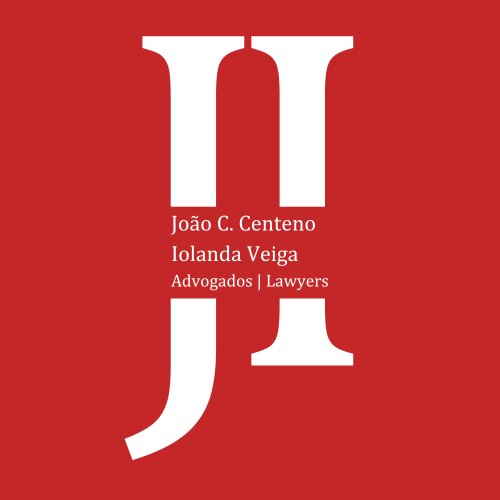Best Agriculture Lawyers in Lagos
Share your needs with us, get contacted by law firms.
Free. Takes 2 min.
List of the best lawyers in Lagos, Portugal
About Agriculture Law in Lagos, Portugal
Lagos, a municipality located in the Algarve region of southern Portugal, is well known for its picturesque coastlines, but agriculture continues to play a vital role in the local economy. Agriculture in Lagos encompasses a range of activity, including the cultivation of crops such as olives, almonds, citrus fruits, figs and carob, as well as livestock farming and viticulture. The agricultural sector supports rural employment, contributes to local gastronomy and participates in sustainable land management.
Portuguese laws and European Union regulations shape agriculture in Lagos by establishing guidelines on land use, environmental protection, agricultural practices, subsidies and rural development. For those involved in farming or land management, complying with these laws is crucial to avoid legal disputes and to access funding or grants that can boost agricultural productivity.
Why You May Need a Lawyer
Engaging a lawyer with expertise in agricultural law can be critical in many situations. Common reasons individuals and businesses in Lagos may need legal assistance include:
- Land Ownership and Transfer - Navigating the complexities of buying, selling or inheriting agricultural land, especially when there are multiple owners or disputes over boundaries.
- Lease and Tenancy Agreements - Drafting, reviewing or terminating crop-share or lease agreements for farmland.
- Compliance with Regulations - Understanding and adhering to local, national and EU regulations regarding environmental protection, pesticide use, animal welfare or organic certification.
- Water Rights and Irrigation - Resolving issues related to access and usage rights for irrigation systems or wells.
- Subsidies and Grants - Navigating the application process for EU or Portuguese agricultural subsidies, correcting documentation or contesting denials.
- Dispute Resolution - Settling disagreements involving neighbors, government authorities or contractual partners, either outside or within the court system.
- Labor Relations - Addressing regulations concerning seasonal workers, labor contracts or occupational health and safety standards on farms.
- Environmental and Zoning Laws - Managing the impact of protected areas, buffer zones or land reclassification on agricultural activities.
Local Laws Overview
Several specific laws and regulations are particularly relevant to agricultural activity in Lagos, Portugal:
- Land Use Planning - The municipality, following national guidelines, regulates the use of arable land, protected zones, and construction on rural property primarily through the Municipal Master Plan (Plano Diretor Municipal or PDM).
- CAP Compliance - Farmers in Lagos benefit from the European Union’s Common Agricultural Policy (CAP), which requires compliance with cross-compliance standards on environmental management, animal welfare and food safety.
- Water Management - The use of water for irrigation is managed through local agencies in accordance with the national Water Law. Licenses are required for well drilling and irrigation system installation.
- Pesticide and Fertilizer Use - Strict rules govern the purchase, application and storage of agrochemicals to safeguard public health and the environment. Non-compliance can result in penalties.
- Organic Certification - There are specific standards and inspection requirements for farms seeking organic certification and marketing products as organic.
- Animal Welfare - Regulations detail minimum standards for housing, feeding, identification and transportation of livestock, reflecting both EU and national law.
- Labor Regulations - The employment of both local and migrant farm labor is subject to labor contracts, minimum wage laws and occupational safety requirements.
Frequently Asked Questions
What types of crops are commonly grown in Lagos, Portugal?
Common crops in the region include citrus fruits, olives, figs, almonds and carob, along with some horticultural and vineyard operations.
Is it possible for foreigners to purchase agricultural land in Lagos?
Yes, EU and non-EU citizens can purchase agricultural land in Portugal with relatively few restrictions, although certain procedures and taxes apply.
What permissions are required to build on agricultural land?
Constructing new buildings on agricultural land typically requires approval from the local municipality, in line with the local land use plan (PDM) and other zoning regulations.
Do I need a license to drill a well for irrigation?
Yes, a permit from the local water management authority is required before drilling a well or installing a new irrigation system.
How can I apply for EU agricultural subsidies in Lagos?
You need to register with the Portuguese Institute for Financing Agriculture and Fisheries (IFAP) and meet certain criteria regarding land management and farm operations.
What are the regulations on pesticide use?
Pesticides must be approved for use in Portugal, and users must follow labeling instructions, safety restrictions and maintain corresponding records.
What steps should I take in case of a boundary dispute with a neighbor?
It is advisable to consult a lawyer familiar with land law who can review property records, conduct negotiations or represent your interests in court if needed.
Are there any protected areas where farming is restricted?
Yes, some areas around Lagos may be protected under municipal or national conservation rules; farming in these zones is subject to restrictions or may be prohibited entirely.
What are the requirements for organic farming certification?
Farms must follow specific production methods, avoid prohibited chemicals, and pass inspections by authorized certification bodies to use the organic label.
How are labor laws relevant to agricultural workers in Lagos?
Agricultural employers must comply with labor laws on contracts, pay, working hours and health and safety for both local and migrant workers.
Additional Resources
If you need further information or assistance, the following resources and organizations can be helpful:
- Instituto de Financiamento da Agricultura e Pescas (IFAP) - For agricultural subsidies and EU support
- Direção Regional de Agricultura e Pescas do Algarve - Regional agricultural authority
- Lagos Municipal Council (Câmara Municipal de Lagos) - For land use and construction permits
- Associação de Agricultores do Algarve - Regional farmers’ association offering advice and support
- Agência Portuguesa do Ambiente (APA) - National authority for environmental and water management
- Confederação dos Agricultores de Portugal (CAP) - National farmers’ confederation
- Portuguese Bar Association (Ordem dos Advogados) - For finding specialist agricultural lawyers
Next Steps
If you believe you need legal assistance regarding agricultural matters in Lagos, Portugal, consider the following steps:
- Identify the specific legal issue you are facing, such as land ownership, regulatory compliance or subsidy applications.
- Gather all relevant documents, including property deeds, contracts, previous correspondence and official notifications.
- Contact the appropriate authority or association listed above for preliminary guidance if the issue is straightforward.
- If the matter is complex or involves disputes, seek out a lawyer with experience in agricultural law within the Algarve region.
- Prepare a concise summary of your situation for the initial consultation to make the process more efficient and effective.
- Follow your lawyer’s advice regarding next steps, which may include negotiation, compliance updates or legal proceedings.
Addressing legal issues in agriculture can be challenging, but with the right guidance and preparation, you can protect your investment and livelihood in Lagos, Portugal’s thriving agricultural sector.
Lawzana helps you find the best lawyers and law firms in Lagos through a curated and pre-screened list of qualified legal professionals. Our platform offers rankings and detailed profiles of attorneys and law firms, allowing you to compare based on practice areas, including Agriculture, experience, and client feedback.
Each profile includes a description of the firm's areas of practice, client reviews, team members and partners, year of establishment, spoken languages, office locations, contact information, social media presence, and any published articles or resources. Most firms on our platform speak English and are experienced in both local and international legal matters.
Get a quote from top-rated law firms in Lagos, Portugal — quickly, securely, and without unnecessary hassle.
Disclaimer:
The information provided on this page is for general informational purposes only and does not constitute legal advice. While we strive to ensure the accuracy and relevance of the content, legal information may change over time, and interpretations of the law can vary. You should always consult with a qualified legal professional for advice specific to your situation.
We disclaim all liability for actions taken or not taken based on the content of this page. If you believe any information is incorrect or outdated, please contact us, and we will review and update it where appropriate.










